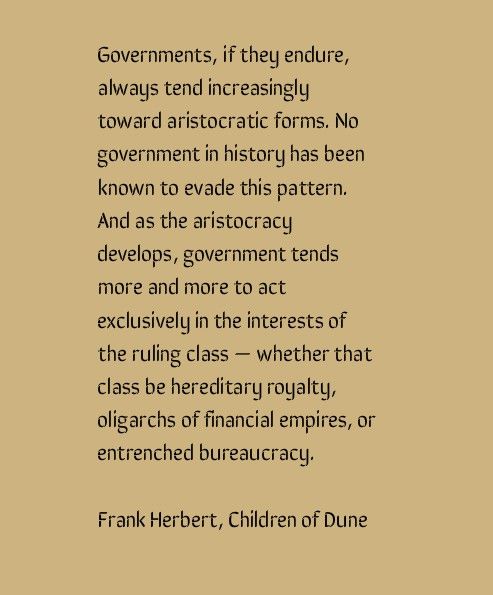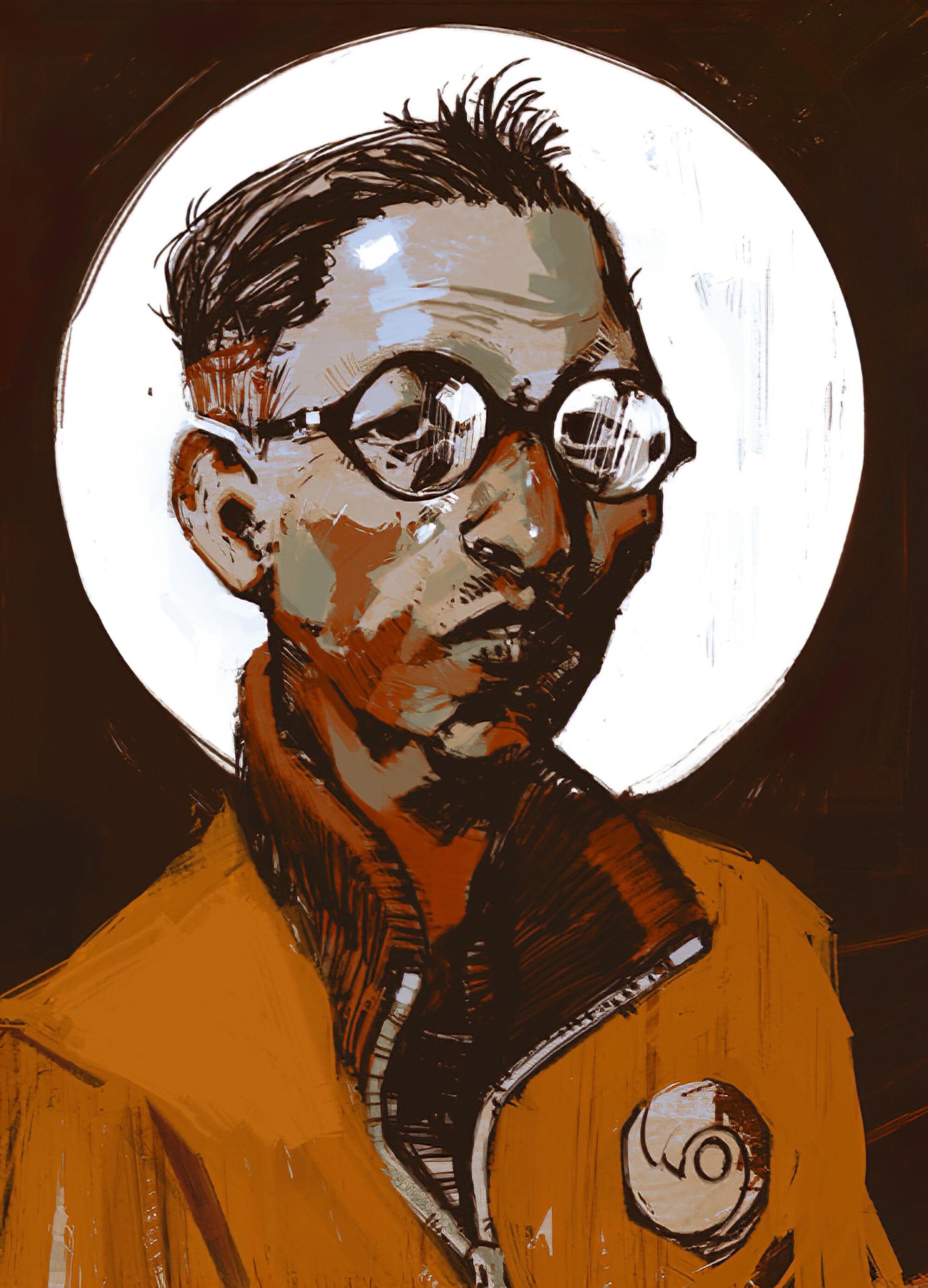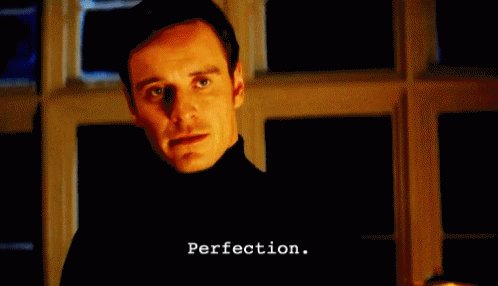This is the official hexbear Dune discussion thread (not really)
I watched the new Dune and enjoyed the films from a cinematic/fantasy perspective but wasn't super on-board with the politics as I thought the message was simply 'leaders bad', but what didn't come across (imo) from the movies and what I'm learning from discussion of the books is that the message is more nuanced than that: Herbert's message wasn't "don't blindly follow leaders because they're evil", but "don't blindly follow leaders because movements based on blind belief are a force of their own and can sweep everyone up into a mess, even if that was not at all the intention", and there are of course examples of that happening throughout human history. I want to hear all of your thoughts on the books, the films, and the messages. Thanks. ![]()
Good and reactionary, because the reactionary elements are mostly a deliberate subversion and commentary on the complex relationship between individual agency and large political movements.
Like Paul isn't a bad person, per se, but he can't find any acceptable way out of the trap he's been forced in to by the machinations of other people going back thousands of years. He knows the Jihad is coming but his attempts to avert it prove fruitless because one person, even a super-human who is nigh divine, can't exert dictatorial control on whole nations and belief systems.
The Fremen aren't evil, per se, but their beliefs and religion have been shaped by the deliberate manipulations of extremely canny political actors over the course of millenia. The incredible harshness of their world has imposed some very social darwinish constraints on them, and it has given them a very fatalistic and utilitarian view of the world. They've been subjected to countless generations of brutal imperialism by the wider galaxy. But they're not hapless victims; They have agency. In spite of everything they've been working with Kynes to secretly horde vast amounts of water with the ultimate goal of making Arrakis a green world. They've successfully concealed their true numbers and technical capabilities from the wider galaxy for a vast span of time. Despite Paul's super-human powers the Fremen have far more control over him than he could ever hope to have over them, as it is ultimately their beliefs that shape Paul's fate instead of the other way around.
The Atreides and the Harkonnens are both a condemnation of Imperialist powers; The Harkonnens are naked and honest about their imperialist violence. The Atreides, while genuinely well meaning, are still Imperialists and their Imperialism, while superficially softer, is just as iron-clad and oppressive. The Harkonnens order soldiers to their deaths on threat of retribution and torture should they fail, while the Atreides send soldiers to their death inspired by iron-clad loyalty to the Duke. But in the end, soldiers die and nobles profit.
The ruthless regime of Eugenics that the galaxy operates under is shown to give humans super-human abilities - Mentats are human super-computers. Darwinian brutality has turned the Fremen in to fighters without peer. the Bene Gesserit can move faster than should be possible and engage in molecular chemistry through fine control of their own endocrine and digestive systems. The Quizzical Hatrack develops powers of data processing, pattern recognition, and raw calculation so powerful that he develops a complete awareness of the past and future. Incredible things. But they don't bring anyone joy or peace. They just turn people in to more and more powerful weapons. There's no master race, no hint of humanity achieving a great destiny through genetic hygiene. The eugenics have just created new ways for people to harm and manipulate each other.
In a lot of ways the story is very grounded in materialism. The whole structure of the galaxy is explained in more or less sensible terms; The Fraufeluch system that limits what technology peasants are allowed to use allows the nobles of the Lansraad to maintain absolute control - Without access to high technology, even if a peasant rebellion succeeded, the nobility still controls space. They can interdict the peasants and starve them out or bombard them from orbit. But since technology is so strictly controlled, to the point where draft animals are used to pull anti-gravity wagons, and the caste system is so rigidly enforced, there's little risk of the nobles every losing control. The relationship between the Lansraad, CHOAM, the spacing guild, and the Emperor shows a system where economics rules and the balance of power is dependent on numerous different interest groups holding knives to each other's throats, but knowing that if they strike they'll be struck down. The Emperor has enough power to crush any one noble house, but the noble houses as a whole could match the Emperor. The Spacing Guild, with it's absolute control over the power to travel between worlds, can protect it's interests by simply denying anyone who acts against it the privilege of interstellar travel. They're all part of CHOAM, dedicated to maintaining the flow of spice that all of them rely on - For space travel, for longevity, for the enhanced mental abilities the nobility need to survive each others brutality. There's no fanciful absolute monarchs or arbitrarily strong villains. All the actors on the stage are there for a reason that is justified by the economic norms of the galaxy.
It's not all sweetness and love. Herbert had a very reductive view of Islam in many ways, and while it's a subversion of the white savior narrative it's still a white savior story. And it has other various problems. But a lot of it's staying power comes from the very complex work Herbert created and the way he uses that world to reflect on the nature of power, individual agency, religion, the weight of history that lies heavy on us all, and other serious topics.
Someone else in this thread said it means islam and psychedelics are cool so I'm going with them over what you wrote.
Just kidding, this is interesting. Thank you.
I can't believe people are smart enough to write all of this out, just on a whim on a hexbear post
Explain it to me I don't get it.
I understand we're talking about Paul, and it's something to do with him being robotic? Why quizzical?
Its a play on the Dune made up phrase, "Kwisatz Haderach".
Its the thing the Bene Gesserit "witches" have been selectively breeding humans to create.
You can kind of get whatever you want out of Dune but the important takeaway imo is that psychedelics and Islam are cool
I just finished reading the first book, haven't seen the movies. Sorry I wrote this so awkwardly.
your questions
These are some of the most consistent themes. Individuals are subject to the political forces that bind them, no matter how cruel, just, powerful, or special they are. Religion and culture are things that are beyond the scope of one person. Religious leaders that go against the tides of their faith are far more likely to be swept up in it than change it. Our environments shape us. We cannot stop ourselves from being changed by our circumstances. Power doesn't make you happy. Power makes us less human. Our individuality is something that needs to be maintained, especially when religion and law mix.
my issues with it.
I didn't like the whole hard times make hard men bit. "Hard Men" don't win wars, military training, equipment, resources and doctrine win wars. It helps, sure, having more resilient soldiers more willing to die helps. But in the real world that comes more from religious fanaticism, national identity, desperation, or the simple fact that some assholes want to burn your house down and kill your family.
I felt like much of fremen culture is not possible for the human psyche to handle. I don't think that grief and resentment can be bottled up so easily without consequence.
I have a problem with some of the gender stuff. Most of my issues were in the first half of the book, and I read the first half, set it down for a year and then returned to it. But, I remember having a lot of issues with how Jessica was written in the first half. All of Jessica's character development comes from her relationships with the Dukes. Jessica only moves past the training of her dark sisterhood through seeing the power of a man. I felt what women were in the story were often wrote as accessories to men. 90% of chani's character is basically just "Paul's wife."
things I like about it.
I love the ecology bits. I love the focus on how people and culture and ecosystems are things created.
I love how the great man myth is thoroughly refuted. I love how tropes about great heroes are subverted.
I love how the magical powers that are so coveted are ultimately a tragic thing for the people who have them. Seeing a future he cannot change tears at Paul. It denies Alia the life she deserves. Jessica loses her opportunity to be truly maternal to her son.
Most of all I love the writing. How within each page there are references to multiple philosophies, religions, themes, science, or deeply grounded world lore. Its suspenseful, dreadful, and beautiful.
Thanks for posting this right after I finished reading the book!

I agree with you completely except for this pair of lines:
I felt like much of fremen culture is not possible for the human psyche to handle. I don't think that grief and resentment can be bottled up so easily without consequence.
... because there was, in fact, a massive consequence to the Fremen's bottled-up grief and resentment: they went on a genocidal, galaxy-spanning jihad before being driven extinct by their supposed white saviors.
Thats true! It certainly has narrative consequence. But it doesn't effect their personal lives or relationships at all. Humans are social creatures, and grief doesn't have a schedule. Part of what Herbert does is assume that the fremen could exist, given an environment like arrakis, and given the collective memory of the reverend mothers and a history of strife and oppression. I just sorta disagree. I don't think humans could be pushed that far. But, this point is the one I feel least strongly about.
If you like the stuff about Paul and his prescience, you should read the second book! It takes a lot of those themes around foresight and power and spends more time fleshing them out, I thought it worked really well as a counterpoint to Dune.
Can't speak for the other sequels, but it seems like they get a bad rep
i can't speak to anything specific but i am up to heretics of dune and post-messiah, call it a vibe, but i feel like the general quality is declining with each additional book
I think it sucks that the movies don't even mention the Butlerian Jihad, the whole setting is built on people rising up against the thinking machines.
I think Villeneuve made a very conscious decision to sideline a lot of the harder sci Fi elements. I felt like it was overall a good idea but it meant that people were largely going to enjoy it based on the more human elements, and the various intrigue. I had to explain a number of things to the friends I saw it with but despite that they were very very enthralled, which I thought meant it was a good success. The fact that they wanted me to explain the scifi stuff stood out bc these friends are definitely not into that normally.
At least its telling us the movies aren't going farther than the first three or four books.
From the three I read (stopped with children of dune) the main theme is that blind loyalty is bad, but there is some stuff I would classify as reactionary:
there is an offhanded comment that feudalism is the most efficient way to govern a planet, this point is never brought up again to be argued against even though the system entrenches the blood feud that causes the first book to happen Edit: I cannot find this comment anymore, I may be crazy, should be within book 1 of Dune
Dune is a white savior inside a white savior: Paul's portion of this is forgivable as Messiah and Children of both reference the idea that he was the wrong choice, but Liet-Kynes is also an off-worlder. Any fremen who has traveled to other planets (even if it's a rare occurrence, what about smugglers or those taken for the Harkonens slave pits) could have had the knowledge of other planets required to tell the dream, but it had to be an outsider who organized and lead them.
Herbert's obsession with how tough environments create tough men; to me it read like the cycles of history hogwash. After all these tough environments weren't enough to save the historical people the fremen are based on from colonization
Herbert was a Republican staffer/writer, so the whole "we need adversity to bring out the best in people" tripe is not surprising. He wasn't the worst guy, certainly republicans back then werent so frothing at the mouth, and I think he was more on the libertarian side (he was against us intervention), but he was also a staunch anti communist and there's more than enough hints of that littered throughout the dune novels.
He wasn't the worst guy, certainly republicans back then werent so frothing at the mouth
He was around during McCarthyism
...and I think he was more on the libertarian side...
I am aware, and tha is why I continue to be bewildered by the feudalism comment, I get the ancap to monarchist pipeline but when he talks about his ideas for America it is in general democratizing. When I first read it I assumed it was a joke.
What I mean is that while Frank Herbert may have never accepted socialism or it's like, he would've likely balked at the continued imperialist interventions in it's future, specifically in the middle east. I imagine he would've also been an advocate for addressing climate change. He was, at the very least, someone who had somewhat nuanced beliefs, which feels rarer among the conservatives we see now (as we slip closer to fascism). Granted if he were somehow alive today it's likely he d just be another doddering old piece of shit.
As for the feudalism stuff, I'm not sure what character promoted the feudalism but it's pretty clear that Herbert didn't see that as the best system. He definitely believed in great men doing great things, and of the need for adversity. If you read God Emperor this is really hammered in. If anything he seems to argue that humans are doomed to cycles of oppression and "freedom" and that is the cycle that Leto 2 is attempting to break by being the ultimate tyrant.
Show
Anyways, I'm definitely not really trying to defend Herbert here. I just got done going through books 2-4, and went through God emperor two times. I first read these books in highschool when I was still in the clutches of my families reactionary ideology and a lot of the great man stuff and shitty philosophy of God emperor (which is really where a lot of his personal political beliefs bleed through) clicked with me now, but seems very stupid now. If you do read it I would say to pretend to yourself that his personal assistant Moneo is a closeted homosexual as that was something I finally picked up on (it's almost certainly not intended by Herbert, it's just very interested to read it that way).
Also I'm typing this on my phone so sorry if what I'm writing kind of goes all over the place. Ive got bad ADHD and if I'm not at a PC to proofread myself I can smash out pretty incoherent messes
Also sorry I reread some of your reply and realized I didn't fully absorb it so I just rehashes what you already said lol
Herbert was so into the ecological side I think that there’s room to explore belief and faith through the lens of humans as part of the environment and how our internal experiences tangibly interact with the ecology.
I haven’t really explored this, but it’s a thought that’s been percolating a bit.
Your second part of the post really ties into book 2 which is an absolute takedown of the great man theory of history. Give somebody prescience and they become a complete subject of the trends and forces they can now clearly see from a zoomed out perspective.
all prescience ever gives the people of dune is the power to see how insignificant they are. its tragic.
In dune 2 (the movie) I feel that message was pretty explicit with Paul's internal conflict with heading south and chani's condemnation of it
In the books Paul compares himself to Hitler and Genghis Khan. I don't think dune has much to say about left movements specifically, just that blind worship is dangerous. The first Dune was written before the cultural revolution, however. Maybe Mao would have been mentioned if it was published a few years later
He doesn't really talk about left movements until book 4, where the God emperor has about a paragraph where he explicitly talks shit about leftist governance devolving into an aristocracy of bureaucracy.
Iirc doesn't he compare himself to Hitler in the sense that he's impressed with how many people Hitler killed despite the primitive technology of that age, and he's going to kill way more people if he can't find a way to avert the Jihad?
Pretty much, although I don't think its so much that he's impressed by it so much as he's trying to impress on his hangers-on just how much suffering they've caused via the jihad. Paul is very bitter/ironic about the whole exchange, he's clearly not happy about having killed so many people. Which, as others brought up, is essentially the whole point of Dune Messiah
Dune is good world building bad writing and characters and reactionary because Frank Herbert is a real piece of shit in his life
The part where Zendaya popped that ornithopter through the shield was sick.
It's like sixty years old who gives a shit
Can we please break out of this complete cultural standstill and get some movies made that are not based on decades old "intellectual property"
Seriously. If you're really interested just read the first 4 books & move on with your life.
IMO you really can't make dune into a movie. The lynch movie while not being "dune" to me is still a work of art in its own way.
The farther I read into the book series, the more .... stupid everybody gets or are shown to be. I'm still unsure if that was intentional or accidental on the writers' part.
David Lynch Dune is still the best Dune movie for my money, I'll fight you on it.
New Dune movie just didn't hit the same spot that the David Lynch Dune did. Haven't watched the second movie yet. Its been a while since I read Dune, but the book spent more time on other characters that made the universe/world of Dune more satisfying to consume. New Dune just ... I dunno... feels like it focuses so much on Paul and everybody looking at Paul that my brain keeps thinking "hey... did all the other characters read ahead in the script/book? 'Cause it seems like they shouldn't know that Paul is the main character of the show just yet..."
Have you seen the 2000 Sci Fi channel mini series? That's my fave.
Relevant analysis: https://cosmonautmag.com/2022/05/the-value-of-dune-a-communistic-perspective/
I would say it is neither based nor reactionary. Just some light entertainment without too much political valance…. Maybe. If anything can be that.













